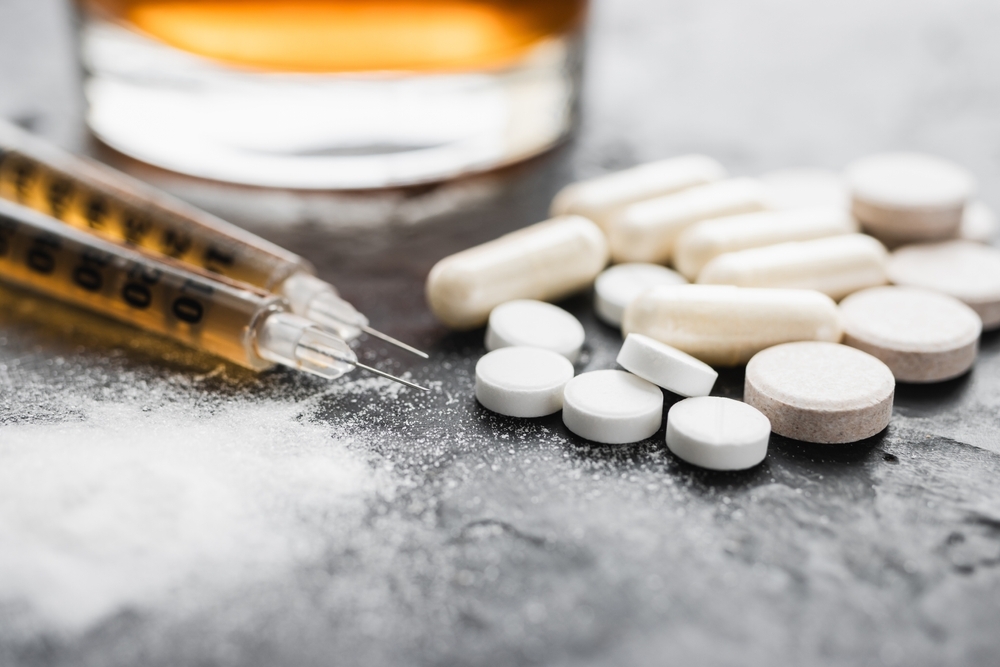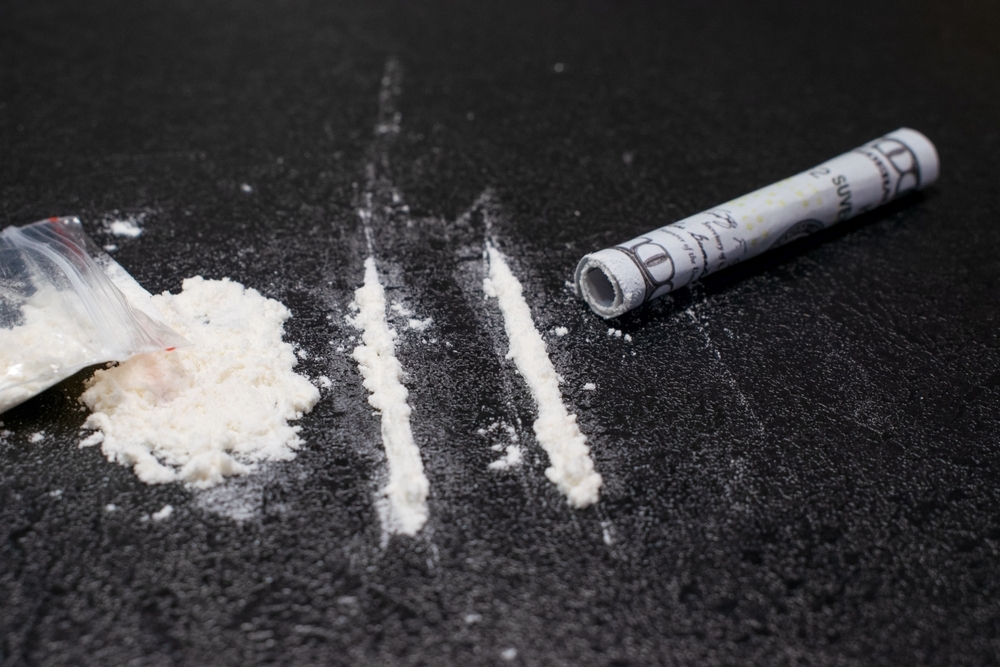Last Updated:
April 10th, 2025
While the descent into heroin addiction can be swift, escaping from its clutches can feel like it takes an aeon. The body may detox in days, yet “true healing,” which restores the heart and mind, can take weeks, months, or even years.
Healing cannot be seen as a countdown; it is a process. Yet, with the right support, it is always possible to reach and bask in the light of an addiction-free life.
What is heroin withdrawal?
Heroin is a potent and highly addictive opioid drug. It is derived from morphine, a substance taken from the seed pods of the opium poppy plant. Opioids and heroin, in particular, have a high potential for addiction, causing an immediate rush of euphoria.
If addiction does form and a person uses it over an extended period, then suddenly reducing use or complete cessation will cause severe withdrawal symptoms. While the process itself is not seen as fatal, as it is a self-limiting process, risks are still involved. Persistent vomiting and diarrhoea, for example, can lead to severe dehydration, higher sodium blood levels and resultant heart failure.
To help reduce withdrawal symptoms and cravings, methadone and buprenorphine are often used as part of treatment. A person recovering may take a daily dose in liquid or pill form, and this treatment can last months or even years.
The process of heroin withdrawal can become extremely difficult to manage, unfortunately leading many to relapse just to stop the onslaught of symptoms. This makes medical detox and professional support paramount for many people seeking recovery from heroin addiction.
What is the typical heroin withdrawal timeline?
Each person’s heroin withdrawal experience is unique. Factors include the length and severity of use, overall health and the degree of support available. In addition, heroin is frequently used alongside other drugs, which affects the recovery timeline.
A general timeline for heroin withdrawal is as follows:
First 24 hours – early withdrawal
It is broadly proposed that heroin withdrawal symptoms commence 6 to 12 hours after last use. From then until roughly a day has passed, withdrawal symptoms can include:
- Temperature flushes, piloerection (goosebumps) and hyperhidrosis (excessive sweating)
- Muscle and bone aches and pains, headaches and cramps
- Lacrimation (very watery eyes)
- Anxiety, irritability and disturbed sleep
- Intense cravings
To help you with processing and understanding symptoms, healthcare professionals use withdrawal scales such as the “clinical opiate withdrawal scale”, available from the National Institute on Drug Abuse.
Days 2-4 – peak withdrawal
In the second to the fourth days that follow after the last use, withdrawal usually intensifies and becomes more difficult to manage. In this phase, a person suffering may experience symptoms including:
- Nausea, vomiting and diarhhoea
- Tremors and shaking
- Increased heart rate
- Tachycardia (heightened blood pressure)
Days 5-10 – symptoms ease
Usually, from around the fifth day onwards, symptoms start to taper off, though intense cravings, anxiety and depression may persist or even worsen.
Weeks to months – Post-acute withdrawal syndrome
As the detox process physically works the substance out of your body, the recovery process begins to hinge on more emotional and psychological factors rather than physical ones. Many people experience lingering withdrawal symptoms, often called “post-acute withdrawal syndrome” (PAWS).
These symptoms are highly unique to each individual and can include:
- Sleep disturbances and insomnia
- Impaired motor coordination
- Stress sensitivity
- Depression and lack of motivation
- Inability to focus
- Extreme mood swings
Post-acute withdrawal symptoms are thought to be the result of the way drugs like heroin change your brain and your ability to deal with stress stimuli. Research from addiction experts describes PAWS as your brain’s way of correcting those changes, especially the chemical imbalance that happens during substance addiction.
Though timeline measurements cannot be exact, PAWS is a common part of recovery and is usually only temporary. PAWS might occur just a few weeks into recovery or many months later. If you do experience PAWS during the first months of recovery, your chance of relapse can increase, making the mitigation of relapse risk critical.
How can I best maintain long-term recovery?
A true and lasting recovery from heroin addiction cannot only involve turning your back on the drug and hoping never to return. Complete recovery needs ongoing support and deep lifestyle changes to remain strong.
Prolonged studies carried out over 33 years recognise heroin addiction as an increasingly chronic relapsing condition. Significant long-term strategies need to be put in place to prevent relapse.
Some of the principles, techniques and strategies promoted in treatment to help your recovery include:
Therapy
Many addiction treatment specialists will incorporate therapy into the recovery programme, such as cognitive-behavioural therapy (CBT), dialectical-behavioural therapy and motivational interviewing. These evidence-based therapies help you recognise recurring unhelpful thoughts and cognitive distortions. By learning practical ways to identify and reframe unhealthy thinking and coping, long-term recovery becomes easier to achieve and maintain.
Supportive care
Recovery can feel borderline impossible when you attempt to go it alone, forever. The best chances of long-term recovery happen when a deep support system is in place. Being around people who make an atmosphere conducive to recovery can be the difference between sobriety and relapse.
If you’re struggling, reach out to support groups like Narcotics Anonymous (NA), SMART Recovery, or group therapy providers that can give you a space to share your experiences. Troubling and lingering thoughts in recovery can make a heavy weight to carry, so don’t isolate yourself. Connect with a supportive network to help ease the emotional toll of recovery.
Medication
In the recovery process, treatment providers may give you medication alongside counselling to help manage and mitigate withdrawal symptoms. Depending on your treatment provider, you may be given:
- Methadone: This can help block the effects of opioids and is available in pill or liquid form.
- Buprenorphine: This works to reduce pain by interrupting the way nerves signal pain between your brain and body. It can be taken orally or as a once-a-month injection.
- Buprenorphine/Naloxone: This is a combination of buprenorphine and the overdose-reversal drug naloxone. Government bodies and overdose charities are working to promote naloxone kits to prevent opioid overdoses.
It is crucial to speak with your treatment provider for advice on medication-assisted treatments (MATs) to reduce the risk of relapse.
Developing holistic self-care
A heroin recovery programme will encourage holistic well-being to help support lasting sobriety and lead a more fulfilling life. Relapse often happens when a person hasn’t spent enough time practising self-care and nurturing their body, mind and emotions.
Developing exercise routines, a healthier diet, and sleeping habits can support physical well-being. Moreover, journaling exercises and creative outlets can improve emotional health and mental care. Finding meaningful hobbies to fill the void left by addiction helps increase the likelihood of permanent sobriety.
Where can I find help for an addiction?
Recovering from an addiction can be one of the hardest experiences a person ever goes through. Without the right support, the urge to relapse can become unmanageable, no matter how hard a person tries.
Here at UKAT, we specialise in recovery programmes and treatment for heroin addiction. We use evidence-based therapies to give you the skills needed for lasting recovery. Comprehensive aftercare services help to keep you on the path toward a fulfilling life, free from addiction.
The help you need is here, so take the first step today. Reach out to us and start your own journey to the life you want.
(Click here to see works cited)
- Yes, People Can Die from Opiate Withdrawal – Darke – 2017 – Addiction – Wiley Online Library, onlinelibrary.wiley.com/doi/pdf/10.1111/add.13512
- Clinical Guidelines for Withdrawal Management and Treatment of Drug Dependence in Closed Settings. Geneva: World Health Organization; 2009. 6, Methadone maintenance treatment. Available from: https://www.ncbi.nlm.nih.gov/books/NBK310658/
- Department for Health and Wellbeing “Sa Health.” Opioid Withdrawal Management, www.sahealth.sa.gov.au/wps/wcm/connect/public+content/sa+health+internet/clinical+resources/clinical+programs+and+practice+guidelines/substance+misuse+and+dependence/substance+withdrawal+management/opioid+withdrawal+management.
- Clinical Opiate Withdrawal Scale, nida.nih.gov/sites/default/files/ClinicalOpiateWithdrawalScale.pdf
- “Post-Acute Withdrawal Syndrome and Opioids.” WebMD, WebMD, www.webmd.com/mental-health/addiction/opioids-post-acute-withdrawal-syndrome
- Bahji A, Crockford D, El-Guebaly N. Neurobiology and Symptomatology of Post-Acute Alcohol Withdrawal: A Mixed-Studies Systematic Review. J Stud Alcohol Drugs. 2022 Jul;83(4):461-469. doi: 10.15288/jsad.2022.83.461. PMID: 35838422; PMCID: PMC9798382.
- Hser YI. Predicting long-term stable recovery from heroin addiction: findings from a 33-year follow-up study. J Addict Dis. 2007;26(1):51-60. doi: 10.1300/J069v26n01_07. PMID: 17439868.
- Silva, Sandra. “15 Cognitive Distortions to Blame for Your Negative Thinking.” Psych Central, Psych Central, 22 Nov. 2024, psychcentral.com/lib/cognitive-distortions-negative-thinking.


